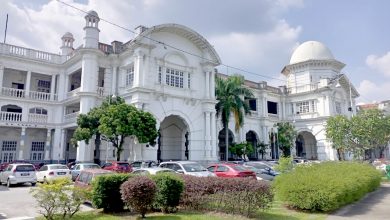

By Fathol Zaman Bukhari
The call by the Sultan of Johor for the return of English-medium schools is not only timely but appropriate considering the decline in the standard of spoken and written English among Malaysians. By and large a good percentage of Malaysians have a very poor grasp of the language and this includes senior government officers who are supposed to be able to write and converse in English. Back in the good old days it was a prerequisite as job interviews were conducted in English and, in my case, I was required to not only speak but write English as well. By a stroke of luck the subject I got was Olympics Games – its origins and developments.




Mexico was the next host, and although the games was a year away, I summed up by saying that the Mexicans were prepared for the worse, as an emerging nation they had plenty to learn. The fact that the rarified Mexico City air, high up in the clouds, would have an impact on athletes’ performance, did little to deter the Mexicans from putting their best foot forward.
The interviewers, a panel consisting of commissioned officers headed by a colonel, were much impressed by what I wrote and articulated. I got selected to join the Royal Military College as an officer cadet. And the rest, like they say, is history.
Now having being in Ipoh Echo for over 12 years, I can say with much certainty that the standard of spoken and written English among my staff is nothing to shout about. It is mediocre at best. Who are we to blame for the falling standards? I will apportion the blame on the government of the day for having allowed it to happen. The government has made too many changes to the education system and every minister in charge of the education portfolio interprets, defines and delivers his own policies without consulting parents and experts. So here we are languishing at the bottom of the pit, not really knowing what has hit us. It is most distressing indeed.
The call for a revival of English-medium schools will not go down well with nationalists who insist that Bahasa Malaysia be the medium of instruction in the country. They have been at this game since the country gained its Independence in August 1957. And I can attest to that, being a product of that period in time. The good part was my late father had the foresight to re-enrol me in a mission school although I had spent almost a year in a Malay school.
And to rub salt to wound, former Umno bigwig who was once a Menteri Besar and a minister in Tun Mahathir’s cabinet had the audacity to suggest that Bahasa Malaysia be the language of choice in South East Asia. Wonder what had gotten into him when he made that pronouncement?
It was the time of the year when we packed our bags for our annual family holidays abroad. Our pick this year was Osaka, Japan. The reason was obvious, Universal Studios and the shopping malls of Dotonbori in the district of Shinsaibashi, two distinct features that appeal to our senses, especially that of my wife, son, daughter-in-law and granddaughter. We were billeted at the APA Hotel in Namba-Shinsaibashi, a popular hotel chain in Japan with branches in America and Canada. Although the rooms were small the facilities were superb.


Reality hits you hard upon arrival at KLIA. The inefficiency is so obvious. We arrived along with plane loads of pilgrims on umrah and getting past immigration was a real hassle when one smart aleck directed us to the under-manned foreign passport-holder counters. And to top it all Arabic is now being freely used over the public-address system at KLIA. I doubt the pak ciks and mak ciks know what is being uttered. For a moment I thought I had landed in Riyadh, Saudi Arabia.


